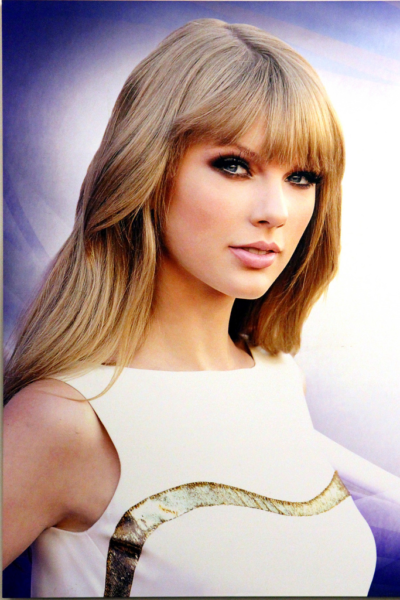Pop Star Taylor Swift (Courtesy of The Country Music Hall of Fame/Flickr)
“I’ve got a list of names and yours is in red, underlined . . . ooh, look what you made me do”
What happens when the world’s biggest Pop Star gets political? Taylor Swift broke her political vow of silence on October 7, announcing her support for two Democratic candidates in her home state of Tennessee on Instagram and setting social media ablaze.
Swift denounced Republican candidate Marsha Blackburn, who has served Tennessee’s 7th district since 2003, stated in an ad, “I am a hard core, card-carrying Tennessee conservative. I’m politically incorrect–and proud of it.”
Blackburn has voted with President Trump 91% of the time. She supports the National Rifle Association, and her views on reproductive rights and marriage equality could endanger Roe v. Wade and Obergefell v. Hodges.
Swift posts, “In the past I’ve been reluctant to publicly voice my political opinions, but due to several events in my life and in the world in the past two years, I feel very differently about that now. I always have and always will cast my vote based on which candidate will protect and fight for the human rights I believe we all deserve in this country.”
The record-holder for Billboard Music Awards also condemns “discrimination based on sexual orientation or gender” and restrictions against the LGBTQ population. Marsha Blackburn’s vote against the Violence against Women Act is particularly concerning to Swift.
One day after Swift encouraged followers to visit Vote.org, a nonpartisan group that works toward increasing voter turnout, its daily visitor rate jumped 1,107%. Additionally, more than 65,000 people registered to vote in that same 24-hour period.
The main demographic of Taylor Swift’s fan base that is eligible to vote is between the ages of 18 and 24. Subsequently, the numbers of newly registered voters within that age range doubled overnight after her post.
Celebrity activism can be a precarious undertaking for artists since they risk alienating fans who do not share their beliefs.
Swift had both conservative and liberal fans who shared an appreciation for her music, but her recent stand has her fan base divided as the country. Swift’s opponents are calling on her to stick to music whereas her supporters applaud her activism.
Celebrities can help raise money for candidates, energize the base, and appeal to voters who may have been marginalized in the past. The most successful celebrity endorsement was Oprah Winfrey’s 2008 support of Barack Obama. University of Maryland economists, Craig Garthwaite and Tim Moore, estimate that Winfrey’s endorsement generated more than one million votes for Obama.
Despite these celebrity endorsements increasing the pool of voters, blind voting isn’t necessarily a good thing. If she energizes the youth, who are the least likely demographic to vote in the midterms, her endorsement may be very valuable. But if someone votes for a candidate only because an admired celebrity endorses them, that candidate isn’t guaranteed to represent that voter’s views.
We’ll soon see if Swift’s endorsement can be a candidate’s “first string, A-list, end game.”








